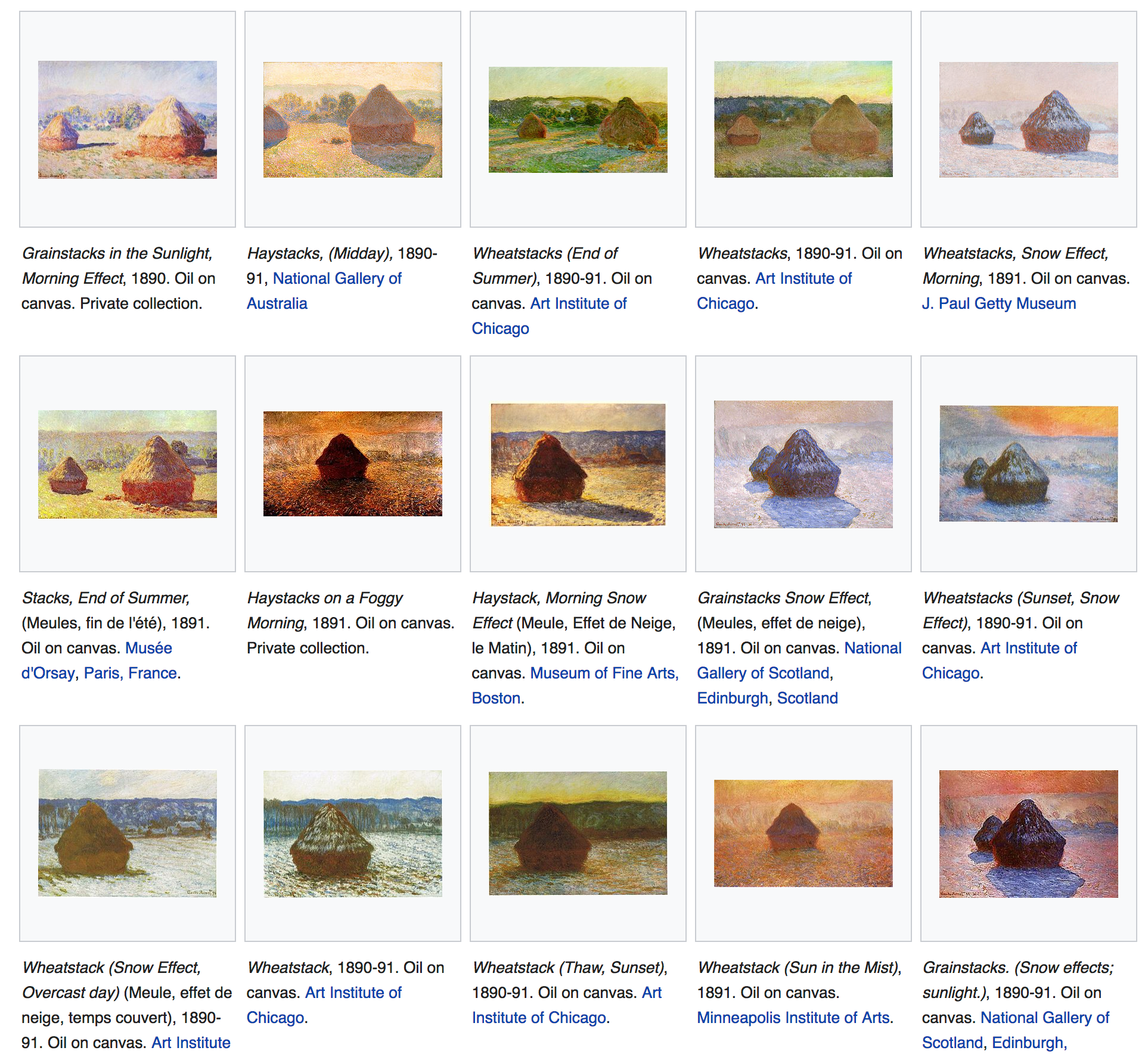
There’s an endless list of books about how the greatest become the greatest — deliberate practice. They don’t just show up time after time. They also set short measurable goals and keep stretching them.
Time your runs. Swim a bit faster. Get yourself over that pull up bar just one more time.
That’s great for performance sports. The goals are easily measurable.
But I’m not looking to be, for example, a fast editor. I’d like to be a better, more creative, editor. I want to build bigger audiences. And get more subscribers this week.
So how do you deliberately practice in the creative field where success is often external, unpredictable, and uncontrollable?
Here’s four ways I’ve found over the years to deliberately practice being more creative.
Repetition
How many times have you redone something? Probably not more than 18. Monet painted at least 18 haystacks that we’re aware of. He destroyed a bunch too.

Work on the same thing over and over and over and over again. It’s that simple.
I repeat myself constantly. I try and tell the same story over and over. I redesign the same thing over and over. Each time trying to make it better.
At Highrise, I’ve started a new redesign of the whole site at least 3 times. I’ve burned them like Monet, but they’ve all informed me of things I’d like to see and honed my eye for things that work.
Imitation
Try to imitate other people’s work. Don’t pass it off as yours of course. But envision what it would be like if someone you look up to was working on your current goal.
More than once, I’ve channeled Malcolm Gladwell. How would he write this? What would the style be like? Where would he go to be inspired?
Use imitation as way to practice techniques others have mastered.
Experimentation
Force yourself into modes of experimentation. In other words…
Do weird shit.
A great example I found recently was watching an interview with Casey Neistat. You know how interviews go. You’ve seen a million of them. Except this interview involved hot wings. The wings got hotter and hotter and made Casey more uncomfortable as they went. Now, that’s taking interviews in a really weird direction. But it worked.
How’d they come up with that? I have no idea. But I bet if you took an interview and decided, “you know what, I’m just going to get really weird with it.” You would eventually come up with something compelling.
I’m sitting here now, and I’m thinking, let’s have an interviewee play with my kid’s toys (hell, let’s even make them play with my kid, while I ask them questions?) Great idea? Who knows. Unlikely. But at least it’s an experiment you haven’t seen before. Maybe it’d work. If not, something else will.
Constraints
James Altucher, writer, podcaster, and just interesting human, is constantly encouraging people to come up with 10 ideas. Then 10 more. Then 10 more.
It’s just lifting a weight. Training the idea muscle like an athlete would train their legs.
The best deliberate practice I know is adding some arbitrary constraint.
Publish a video every single day for a year. Write 5 articles a week for 3 months. You normally write 1000 words? Force yourself to only write 500.
I often publish vlogs anywhere from 4 minutes to 10 minutes. With 2018, I’m now giving myself the constraint of publishing only 3 minute vlogs. I have no idea how long I’ll keep this up, but the constraint forces me to get better at editing, and finding places where the story repeats itself or gets boring.
It really doesn’t matter what you pick. Just pick something that makes you uncomfortable, like picking up some heavy weight. Then do it a bunch.
I think a lot of us read these books about deliberate practice, and see all these examples of athletes, and we miss the lesson. There are parallels we can use to improve our creative selves, if we just dig a little deeper.
Practice isn’t the thing you do once you’re good. It’s the thing you do that makes you good. ― Malcolm Gladwell
P.S. You should follow me on YouTube: youtube.com/nathankontny where I share more about how we run our business, do product design, market ourselves, and just get through life. And if you need a zero-learning-curve system to track leads and manage follow-ups, try Highrise.


